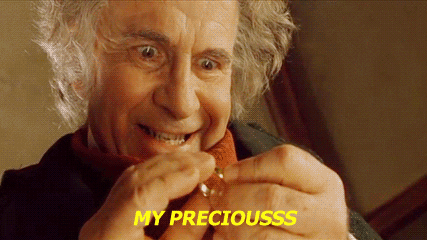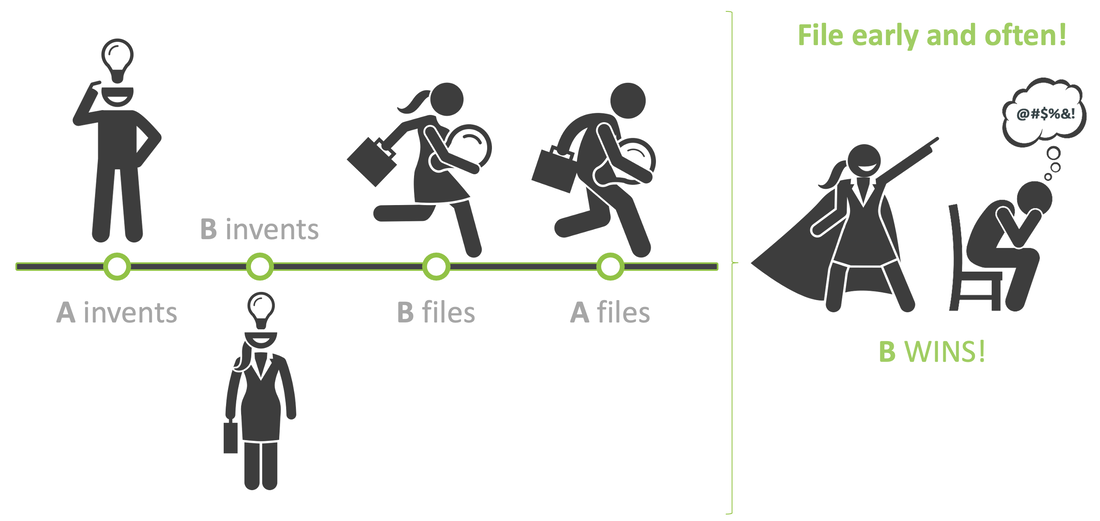|
By: Ashley Sloat
To Share or Not to Share...
You’ve had your stroke of genius. Your next inclination is to immediately do one of two things: 1) Yell it from the rooftops and share it with anyone who will listen or 2) keep it close to the vest, not tell anyone, and guard your idea like it’s the One Ring. Both instincts are usually wrong. At least in their absolute forms.
Knowing when to share your idea and when to shush is a vital distinction on the journey to innovative success.
The Opportunity Cost Problem
As we’ll discuss more, sharing too much and too soon can have detrimental effects on your ability to later protect your idea. But not sharing at all can come with tremendous opportunity cost. Sharing an idea provides valuable insights and traction, from feedback to refinements to people recruitment.
Reid Hoffman, founder of LinkedIn, venture capitalist, and renowned “Oracle of Silicon Valley” has said: When you have an idea, a classic entrepreneurial impulse is to hold the idea close to you and not tell people and that’s almost always a mistake … the truth is, your asset is that you were in motion on this idea and you should talk to everyone smart who can give you feedback to try to refine the idea, to try to build it. The Approaching Investors/Pitching Problem
AKA: Can I share my idea before filing a patent?
Keeping your idea a secret may also not be an option depending on your funding goals. As an inventor approaching potential investors, you’re going to want to protect your idea from being stolen. You might be inclined to think a nondisclosure agreement (NDA) is the answer. Many investors, however, are unwilling to sign confidentiality agreements, given their handcuff potential on future deals. Protect Your Idea with a Patent Before Sharing
So how do you strike the balance? How do you share enough to get the invaluable gift of feedback and give investors the details they need to evaluate deals, while protecting your idea from being stolen, but do so in a way that is economically practical pre-investment and pre-revenue? The simple answer is: file a provisional patent application before you publicly share, sell, or disclose any details. Provisional patents in particular are a cost-effective, low fidelity (you don’t have it all figured out yet) approach to protecting your idea, while securing the earliest possible filing date. Let’s explore why this matters.
First Inventor to File
The United States, similar to the rest of the world, is a first inventor to file system, which means...you need to file a patent on your technology before you publicly disclose it. If someone invents the idea after you but files with the patent office before you, that someone wins the patent and you lose.
What constitutes public disclosure?
Publicly disclosing your invention before you file a patent application can cause you to lose your patent filing rights. For example, in the U.S., the following activities could bar your idea from later patenting:
Are there exceptions to when I can share?
There is lots of gray area between patenting and sharing. For example, advertising a product not yet developed, pre-announcing a product that is not yet developed, or experimental use are all public events when your idea is not “patent ready” so such activities may not prevent you from later patenting your idea. Some jurisdictions, including the U.S. also offer grace periods, so if you accidentally shared too much before reading this, you may still be able to get a patent.
Shush => Patent => Share => Succeed
Share your idea – and do so with great gusto – but only after your patent application is filed. Patents have the long term added value of maximizing startup funding and growth, while protecting your valuable technologies as early as possible so you can go out and start safely getting that valuable feedback. You will learn great things about the technology and yourself when you share it.
Go Deeper
If you'd like to learn more about the topics discussed in this post, please check out the following. Or just drop us a line and we'd be happy to help!
The on-sale bar topic is SO important that we made it the main focus of our first podcast episode, where we take a deep dive into the trapdoor-esque implications of selling your innovation before filing.
7 Comments
1/8/2022 01:55:11 am
I loved it when you said that publicly disclosing your invention before you file a patent application can cause you to lose your patent filing rights. My father is an inventor. He has many inventions that can truly help a lot if produced. I will share this post with him on the idea of where to find Technologies for Licensing services for his inventions.
Reply
Ashley Sloat
1/9/2022 11:18:46 am
Thanks, Jeff, for your comment! There are so many sharp corners to public disclosure and the on-sale bar. Glad you found this post helpful!
Reply
Jeannie Perry
12/17/2022 12:36:42 am
I AM a inventor that needs monies to build my prototype..it will be a 5 story building with four units on each floor. That 20 units that could sale for 170,000 each. That's 3 million when all 20 sale...which they will and fast....the second building will be double that...I am wanting to franchise my brand of buildings. Where do I start? I have filed my non-provisional..I am in Long Beach California
Reply
Willie J Duncan Sr.
12/23/2022 09:27:04 pm
I need to deal with finishing before abandoning take place.
Reply
1/25/2023 11:42:59 am
Thank you for explaining that you should protect your invention by patenting it before sharing it with anyone. I've been wondering if my son should patent something he's been working on and perfecting over the last few weeks. I'll be sure to share this with him since it seems like it could help him with all of the work he's put into it.
Reply
2/14/2023 10:33:01 am
It makes sense that you should get a patent before publicly sharing your idea. My husband started working on a new product at his work a couple of months ago, and he talked about how he wants to make sure his competitors won't be able to take his idea. I'll pass this information along to him so he can look into hiring a company that can help him with getting a patent for his product.
Reply
4/4/2023 09:37:33 am
I was captured when you discussed that secreting your idea may also not be an choice based on your funding goals. My friend needs assistance with their provisional patent applications. I should advise him to seek help from a firm that specializes in provisional patent applications.
Reply
Leave a Reply. |
Ashley Sloat, Ph.D.Startups have a unique set of patent strategy needs - so let this blog be a resource to you as you embark on your patent strategy journey. Archives
July 2024
Categories |




 RSS Feed
RSS Feed